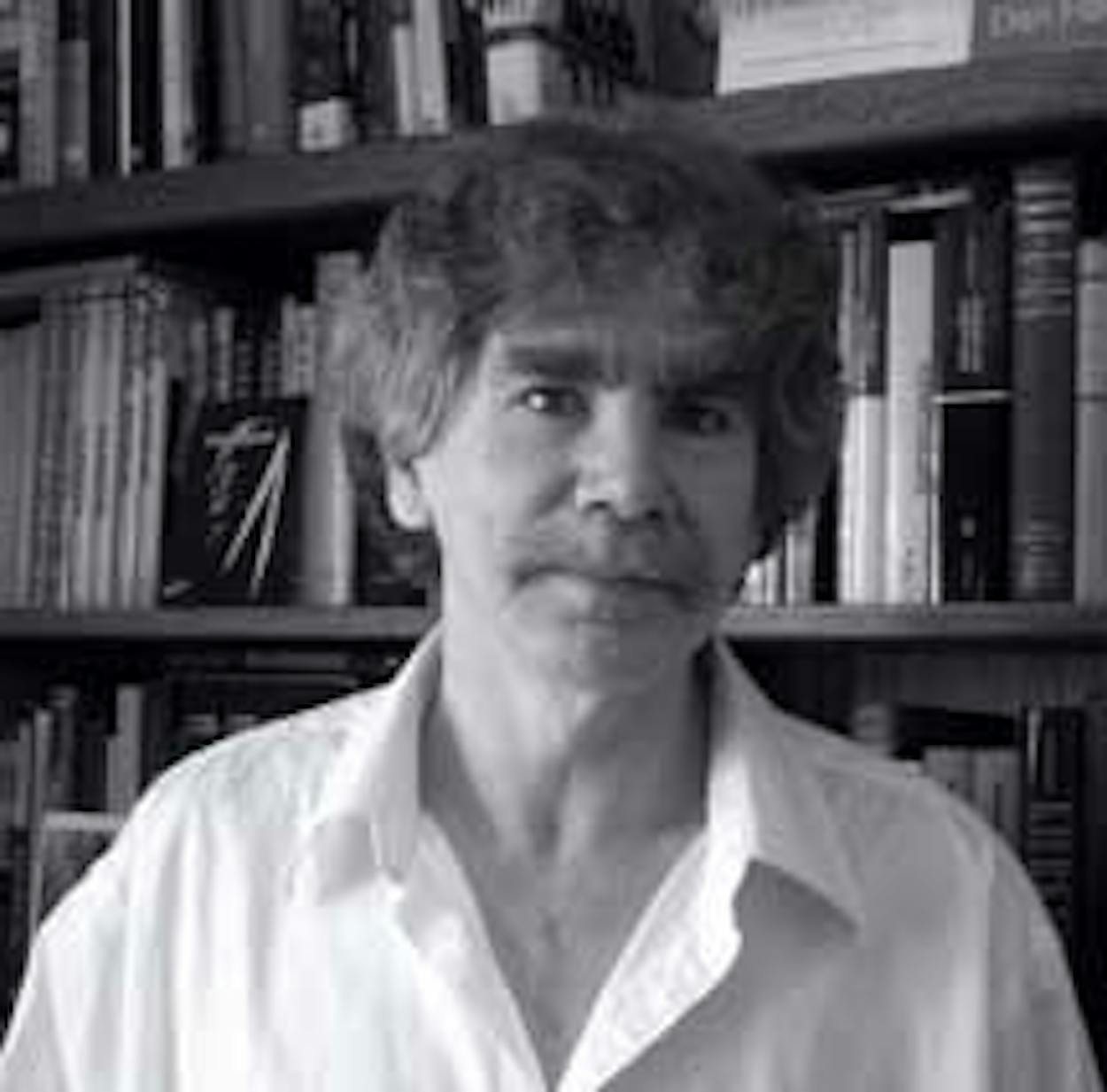In the sixties and seventies, transplanted Houstonian Donald Barthelme made a splash in the New York literary world with short stories and novels like Snow White and The Dead Father. With Hiding Man, one of his former students—now a distinguished professor of English and creative writing at Oregon State University—presents the first biography of one of the twentieth century’s most quietly influential writers.
We don’t expect our artists and writers to be especially virtuous. Where did Donald Barthelme land on the scale of saintliness? Don wrote a story called “The Temptation of St. Anthony” in which the narrator says, “[His] major temptation . . . was perhaps this: ordinary life.” Don found much of ordinary life tedious, in ways that challenged his courtly Texas temperament. Don married four times. Some will shout, “No saint he!” Others will insist his doggedness indicates a sweet-natured and indomitable optimism. I lean toward the latter view, but that probably says more about me than about Don.
Talk a little about Barthelme’s works in the context of their era. Don’s work began appearing regularly in the New Yorker in the early sixties, and it’s astonishing that such quirky fiction—absurd, abstract, sometimes surreal—was accepted into the mainstream. Don’s off-kilter view of the world was right in step with the times, owing much to the black humor of post—World War II novelists like Heller and Mailer and comedians like Sahl and Bruce, as well as to existential philosophy. His material was risky (and risqué) for a slick, weekly American magazine. Mistakenly, I think, Don got pegged as a member of the sixties counterculture. He was hardly countercultural; he was “cultural” in the strictest sense—that is, in trying to move the culture forward with his art.
Barthelme’s relationship with his father was famously contentious. Were their disagreements emotional or intellectual or both? I think the disagreements were emotional because they were intellectual. Karl Killian, who founded Brazos Bookstore, in Houston, says the Barthelme family was like a race of giants, prone to fierce, volcanic talk about art and architecture and music and aesthetics. The elder Barthelme gave Don a level of intellectual stimulation he found almost nowhere else later in life.
Do you have a particular favorite among Barthelme’s works? The Dead Father, written in midcareer, sums up Don’s early preoccupations—an emphasis on style and recasting old myths—and anticipates what was to come in the later work—sparkling dialogues, a more wistful tone—and therefore remains a signature work. My favorite of the story collections is 1970’s City Life, which shows Don inventing at full pitch, with a stunning variety of subjects and story structures.
Was his writing affected by his never-ending moves between Houston and New York? In the summer of 1984, I flew from Houston to New York to visit him, and I saw a very different Don there than I’d witnessed in Texas. He loved to walk, to be among bustling humanity on the streets, a very hard thing to do in car-centric Houston. On the streets of Manhattan—among various body types, ages, accents, architectural styles, building eras, immigrant artifacts, foods, smells, colors—you know you’re part of a living, breathing collage, and you want to celebrate it! This is the essence of much of Don’s writing. What many critics call his absurdity is merely reportage: portraits of city life. All this aside, with some reservations he loved Houston. He returned there in the eighties. He was in a marriage there that was good for him, and he was raising a young daughter in a place he knew was safer than New York. His late stories reflect these concerns, these contentments and worries, and they are richer for it. Read the full interview. St. Martin’s Press, $29.95







